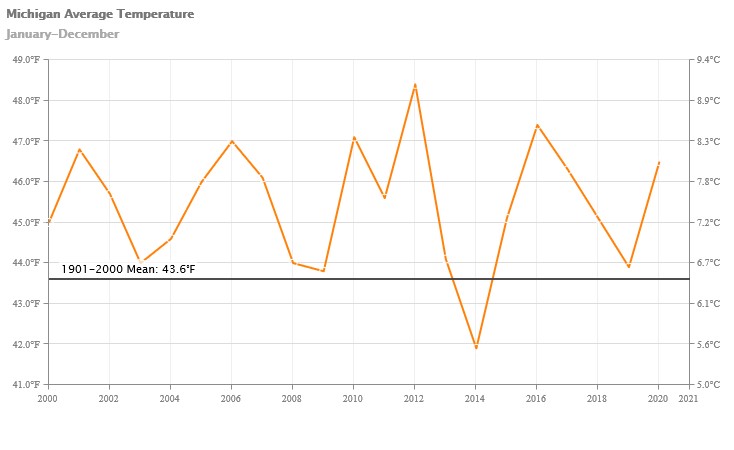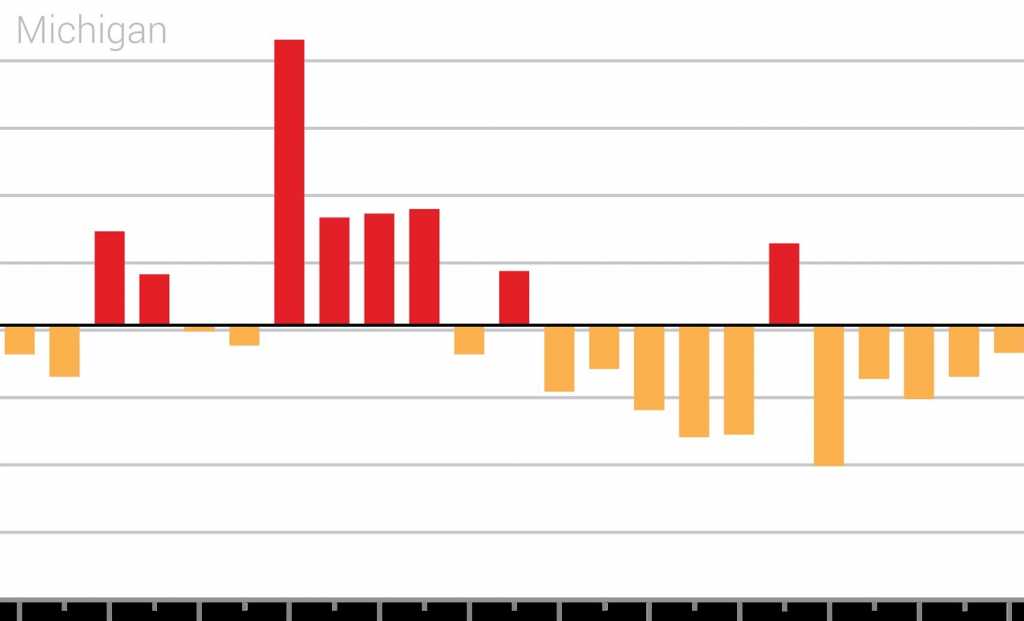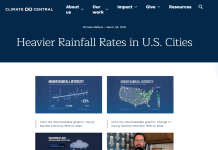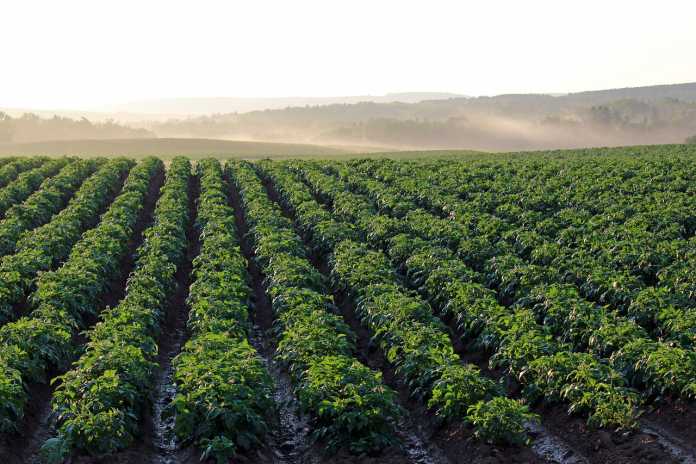Among the top Google News search results today for the term “climate change” is an Associated Press article claiming climate change and warming temperatures are creating storage problems for Michigan crops. In reality, climate change and warming temperatures are blessing Michigan farmers with greater crop production, crop storage, and crop sales every year.
The AP article is titled, “Climate change creates crop storage problems in Michigan.” The article tells the story of a Michigan potato farmer who says cool autumn air is necessary for storing his potato crop, but, according to the farmer, “Our good, fresh, cool air is getting less all the time, it seems like.”
The problem is that a potato farmer’s anecdotal perceptions are not the same as scientific evidence. The scientific evidence, moreover, tells a different story.
According to the National Oceanic and Atmospheric Administration’s (NOAA) Climate at a Glance website, and as shown in the chart below, temperatures in Michigan have not risen at all this century.

Moreover, as shown in the chart below, NOAA’s State Climate Summaries: Michigan reports that Michigan has experienced a below-average number of hot days for every five-year period since 1990. The chart shows five-year periods dating back from 1900, at the far left, up to the present, at the far right. Red bars show a five-year period with a greater-than-average number of hot days, while yellow bars show a five-year period with a less-than-average number of hot days.

Also, farmers in Michigan and throughout the United States continue to benefit from more atmospheric carbon dioxide and modest global warming. As previously documented in a Climate Realism article here, Michigan farmers are enjoying record crop production.
Furthermore, potato production throughout the United States continues to benefit from more atmospheric carbon dioxide and modest global warming. According to the U.S. Department of Agriculture, U.S. potato yields set a record in 2018, with 2019 and 2020 then tying for second place.
So, while a single potato farmer in Michigan may be brainwashed by climate activists and their media allies into believing warmer temperatures are occurring in Michigan and harming his potato crop, science shows that is not the case.



















What modest global warming? Since when?
There is no global warming but there is data altering.
https://realclimatescience.com/2021/03/noaa-temperature-adjustments-are-doing-exactly-what-theyre-supposed-to/
Here is the smoking gun.
https://realclimatescience.com/wp-content/uploads/2021/03/USHCN-FINAL-MINUS-RAW-TAVG-Vs-CO2-1900-2020-At-All-US-Historical-Climatology-Network-Stations-USHCN-FINAL-MINUS-RAW-TAVG-vs-CO2-1.png
The lower troposphere trend (UAH) for global land areas is +0.18 C/decade since 1979.